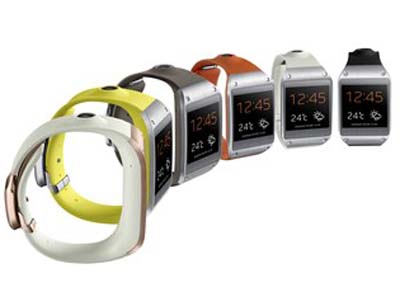Wearables could become commonplace in the workplace, and employees would be happier to share personal information with their employers if they could see tangible benefits. But there aren’t currently clear guidelines to protect employees from misuse of their data.
PwC’s Wearables in the Workplace report finds that 72% of South Africans would consider wearing a device like a smartwatch supplied by the employer, and allow the employer to collect data from it, if the data was used to improve their working conditions.
The survey of more than 2 000 working adults demonstrates that, if there are benefits for the individuals, the proportion of employees who are prepared to share information rises to 87%. These benefits range from flexible working hours (76%); fitness incentives (72%); lower health insurance premiums (70%); and free health screening or annual fitness checks (59%).
Nanie Rothman, associate director in PwC’s Actuarial, Risk and Quants division, points out that the data people are willing to share are unchanging background data: marital status or number of children.
Interestingly, South African respondents are much more willing to share data than UK respondents. So 64% are happy to share their average blood pressure or heart rate compared to 43% or 45% in the UK.
Employers are most likely to share information with their employers on marital status (78%), number of children (74%), frequency of physical exercise (64%), average blood pressure (63%), and average heart rate (63%).
In exchange for the right benefits, respondents would be happy for their employer to collect and analyse data and certain aspects of their health and lifestyle. This includes travel time to and from work (74%), blood pressure (69%), heart rate (68%), movement (62%), and time of arrival and departure from work (61%).
However, there is very little protection for employees at the moment, and Rothman believes that employers need to be quite specific about their guidelines and policies.
Although, most employees believe that they own the data generated, there are no laws or policies in South Africa that determine that. Rothman says PwC is urging employers to start formulating policies now if they are considering a wearables programme.
Employers believe that wearing devices in the workplace could create a happier and more productive workforce while increasing morale. The survey finds that buy-in from employees can be increased if there are incentives offered.
Trust is very important in a wearables programme, says Rothman. The survey found that 20% of employees say they don’t trust their employer to use the data for their benefit; while 20% say they don’t trust their employer to not use the data against them.
“This means there need to be a clear data policy, with guidelines on what data will be collected, and how it will be used.”
The way employers analyse the data, and the programmes put in place on the back of this data, will also be important in the success of a wearables programme.”
She adds: “Companies exploring health and wellness programmes involving wearable devices can expect buy-in if incentives and proper policies are in place ensuring the privacy of employees’ information. Policies should be set to clearly identify what data will be shared with employers and what this data will be used for.
“Employers should also be careful about what categories of data they collect as this will also impact employees’ buy-in.”
Barry Vorster, PwC leader of People and Organisation, says there has been tremendous uptake in the use of wearables, and a variety of use cases has come to light.
“The uptake of these devices has been staggering,” he says. “Organisations have more data than ever before. The key to success for both companies and employees will be overcoming the trust barriers by having clear processes for acquiring, using and sharing the data securely and responsibly.”
For the survey, wearables refers to any clothing or accessory that includes a computer. Among survey respondents, 95% own or use a smartphone, followed by a tablet computer (55%), fitness tracker (20%), e-book reader (16%) and a smart watch (3%).
More than half of respondents (61%) believe they have legal ownership of the data produced by their devices, while 17% say the information belongs to the service providers they use online (Google or Facebook etc); while 9% don’t know who has legal ownership of the data.

